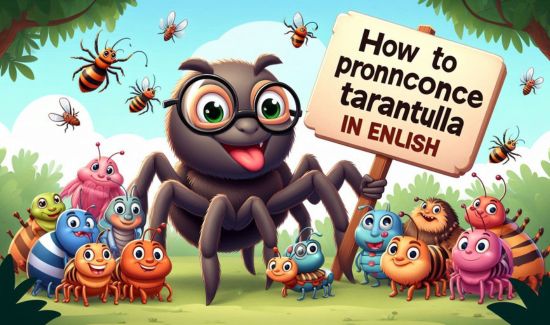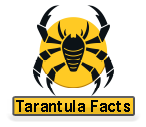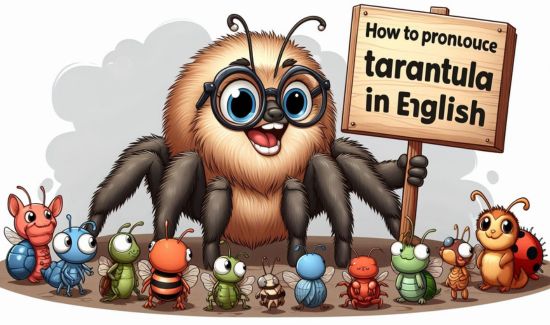Introduction
Table of Contents
Tarantulas are fascinating creatures that often spark curiosity. These large, hairy spiders have a reputation that precedes them, leading to frequent discussions about their unique traits, behavior, and even their name. But how exactly do you pronounce “tarantula”? For many people, saying this word correctly can be tricky. In this article, we’ll break down the correct pronunciation of tarantula, providing tips to help you say it confidently. This guide is designed to be easy for everyone to understand, including grade 5 students, and is packed with interesting facts that will engage US readers.
Let’s dive into the proper tarantula pronunciation explore its meaning, and learn some fun facts along the way!
Table of Information: Tarantula Pronunciation
| Topic | Details |
|---|---|
| Correct Pronunciation | tuh-RAN-chuh-luh |
| Syllables | Four (4) |
| Origin of the Word | Derived from the town of Taranto, Italy |
| Common Mispronunciations | tar-AHN-chu-lah, tuh-RAN-choo-lah |
| Meaning | A large, hairy spider belonging to the Theraphosidae family |
| Sentiment | Positive or Neutral |
What Does “Tarantula” Mean?
Before we jump into pronunciation, let’s explore what a tarantula actually is. Tarantulas are large, hairy spiders belonging to the Theraphosidae family. While they may look scary, most tarantulas are harmless to humans. These spiders are known for their impressive size, with some species reaching up to 10 inches in leg span!
The word “tarantula” is derived from the town of Taranto, Italy. In the past, people in Taranto believed that the bite of a local wolf spider caused a condition known as tarantism. Over time, the name “tarantula” became associated with the large, hairy spiders we know today.
How to Pronounce “Tarantula” Correctly
Now that we know what a tarantula is, let’s focus on the correct Tarantula pronunciation. The word “tarantula” is pronounced as tuh-RAN-chuh-luh. It has four syllables, and the emphasis is on the second syllable: “RAN.”

Breaking Down the Pronunciation
- tuh: The first syllable is a soft sound, like the word “to” but with a more relaxed “uh” sound.
- RAN: The second syllable is emphasized. It sounds like the word “ran,” as in “I ran to the store.”
- chuh: The third syllable is pronounced like the beginning of the word “chuckle” without the “ckle.”
- luh: The final syllable is a soft “luh,” similar to the end of the word “vanilla.”
Common Mispronunciations
Many people mispronounce “tarantula.” Here are a few common mistakes:
- tar-AHN-chu-lah: This version places the emphasis on the wrong syllable, making it sound off.
- tuh-RAN-choo-lah: Adding a “choo” sound instead of “chuh” can lead to incorrect pronunciation.
To avoid these mistakes, remember to place the emphasis on the “RAN” syllable and keep the “chuh” sound soft.
Why Is Pronunciation Important?
Pronouncing words correctly is essential for clear communication. Mispronouncing “tarantula” can lead to confusion, especially when discussing these creatures with others. Additionally, knowing how to say “tarantula” correctly can boost your confidence in conversations, whether you’re talking about spiders in science class, at the zoo, or just with friends.
Fun Fact: Tarantula Pronunciation in Different Languages
Did you know that tarantula is pronounced differently in other languages? For example, in Spanish, it’s pronounced tah-rahn-TOO-lah, with the emphasis on the third syllable. In French, it’s tah-rahn-tyoo-lah, with a softer “tyoo” sound. Knowing how the word changes across languages can be fun and educational!
Exploring the Origin of the Word “Tarantula”
As mentioned earlier, the word “tarantula” comes from the town of Taranto in Italy. The locals believed that the bite of a spider in that region caused a condition called tarantism, which made people dance uncontrollably. Although this was more myth than fact, the name stuck, and the large spiders we call tarantulas today were named after the region.
The Tarantula Dance
In the past, people believed that dancing vigorously could cure tarantism. This led to the creation of a dance called the Tarantella, which was thought to help cure those bitten by the spider. While we now know that the dance isn’t necessary to treat spider bites, the Tarantella remains a popular traditional dance in Italy!
Conclusion
Mastering the pronunciation of “tarantula” is a small but important step in understanding these incredible creatures. Whether you’re discussing spiders in class, sharing facts with friends, or simply improving your vocabulary, knowing how to say tuh-RAN-chuh-luh correctly will boost your confidence. We hope this guide has helped you learn the correct pronunciation, as well as provided some interesting insights into the origin and meaning of the word “tarantula.”
Now that you’re equipped with the right pronunciation, you can impress others with your knowledge of both tarantulas and the proper way to say their name!
FAQs About Tarantula Pronunciation
1. How do you pronounce “tarantula”?
- The correct pronunciation is tuh-RAN-chuh-luh.
2. What is the origin of the word “tarantula”?
- The word “tarantula” comes from Taranto, Italy, where people believed in a condition called tarantism caused by spider bites.
3. Why is it important to pronounce “tarantula” correctly?
- Correct pronunciation ensures clear communication and helps avoid confusion when discussing these fascinating creatures.
4. Are there other pronunciations of “tarantula” in different languages?
- Yes, in Spanish, it’s pronounced tah-rahn-TOO-lah, and in French, it’s tah-rahn-tyoo-lah.
5. What are common mispronunciations of “tarantula”?
- Common mispronunciations include tar-AHN-chu-lah and tuh-RAN-choo-lah.

